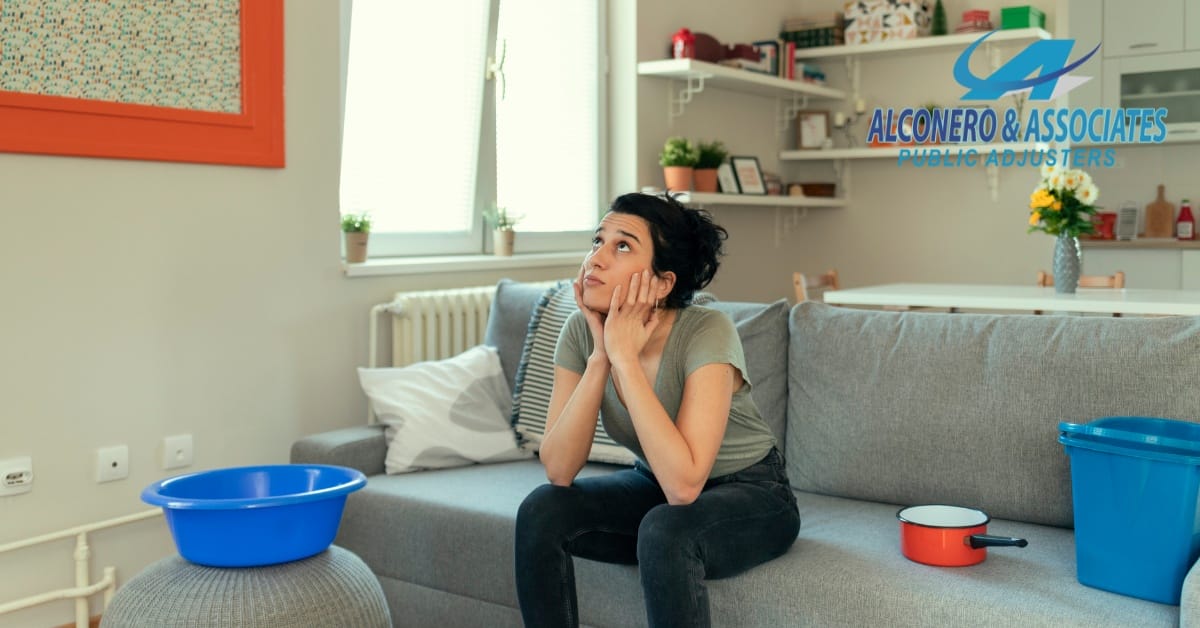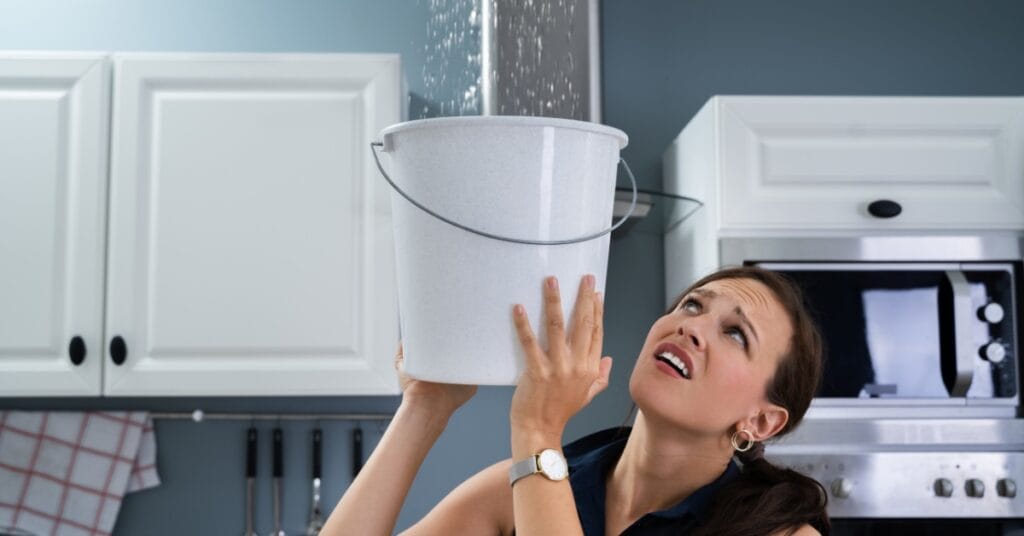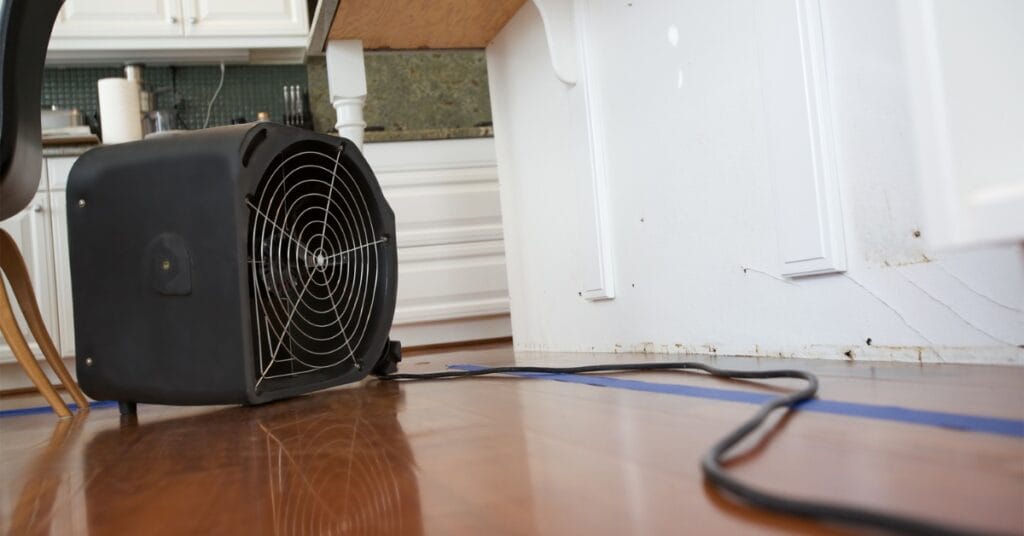
| Key Topics | Summary |
|---|---|
| Understanding Water Damage | Water damage is a serious issue that can be caused by a variety of factors, including rainfall, plumbing failures, or leakage from an upstairs apartment. Immediate action is crucial to minimize damage. |
| Types of Water Damage | Water damage is classified into three categories: clean water, grey water, and black water, which determine the rate of evaporation and the approach to drying. |
| Insurance Coverage | Insurance coverage varies based on the source and extent of water damage. Understanding your policy is critical to navigating a claim. |
| Dealing with Water Damage | Steps include ensuring personal safety, locating and stopping the source of water, contacting the insurance company, and starting the drying process. Professional help may be needed for restoration and mold prevention. |
| Restoration and Repair | Post-damage, the property needs to be cleaned, restored, and rebuilt, often requiring professional assistance for best results. |
| Preventing Future Damage | Regular maintenance, inspections, and proactive measures can help prevent future water damage. |
Introduction
Welcome, dear reader, to our comprehensive guide on a rather frequent and problematic issue: water damage. In particular, we’re going to delve into the scenario of water leaking from an upstairs apartment and its potential impacts. This might seem like a minor inconvenience at first, but it’s not something to be taken lightly. Water damage can cause substantial harm to your property, and if not addressed promptly and appropriately, the consequences can range from structural degradation to severe health risks.
Now, you might be wondering, “Is there a reliable public adjuster near me?” The answer is a resounding yes! If you’re dealing with water damage in Miami, securing the services of a competent public adjuster can make all the difference when you’re navigating through the complexities of insurance claims. Your choice of adjuster can significantly influence the outcome of your claim, ensuring you get the compensation you deserve to address the damages incurred.
Throughout this article, we’ll go in-depth into every facet of water damage. We’ll talk about its causes and types, how to handle it, and how you can prevent it from happening in the future. It’s a comprehensive overview you won’t want to miss, whether you’re currently facing a water damage issue or simply want to be prepared for the future. So, grab a cup of coffee and join us on this informative journey!
Understanding Water Damage in Miami
Water damage refers to a variety of potential losses caused by water intruding into a space where it can enable destructive processes such as rotting of wood, mold growth, bacteria growth, rusting of steel, swelling of composite woods, and many others. It’s a serious concern that can lead to both immediate and long-term issues, affecting the integrity of your property and the health of its occupants.
Water damage can occur due to several reasons, with each scenario bringing its own set of challenges. It could be as simple as a minor roof leak or as devastating as a flood caused by heavy rainstorms or a burst pipe. A malfunctioning appliance like a washing machine or a dishwasher can also cause water damage. On a multi-story property, a common issue is water leaking from an upstairs unit, which can impact the residents below.
When water damage strikes, the damage might not always be immediately apparent. It might start as a small, inconspicuous spot on your ceiling, wall, or floor, but behind the scenes, the water can seep into the structural components of your building, compromising its strength and safety.
Mold growth is another critical concern when dealing with water damage. Mold can start growing within 24-48 hours after water exposure, and its removal can be quite challenging, particularly if it has spread extensively. In fact, we have an entire article dedicated to understanding mold damage, its causes, and mitigation strategies that you might find helpful.
The impacts of water damage make it essential to take immediate action when you notice any signs of water intrusion. Timely intervention can minimize the extent of the damage and potentially save you significant time, money, and stress down the line.
Understanding Water Damage in Miami, Florida
Water damage refers to a variety of potential losses caused by water intruding into a space where it can enable destructive processes such as rotting of wood, mold growth, bacteria growth, rusting of steel, swelling of composite woods, and many others. It’s a serious concern that can lead to both immediate and long-term issues, affecting the integrity of your property and the health of its occupants.
Water damage can occur due to several reasons, with each scenario bringing its own set of challenges. It could be as simple as a minor roof leak or as devastating as a flood caused by heavy rainstorms or a burst pipe. A malfunctioning appliance like a washing machine or a dishwasher can also cause water damage. On a multi-story property, a common issue is water leaking from an upstairs unit, which can impact the residents below.
When water damage strikes, the damage might not always be immediately apparent. It might start as a small, inconspicuous spot on your ceiling, wall, or floor, but behind the scenes, the water can seep into the structural components of your building, compromising its strength and safety.
Mold growth is another critical concern when dealing with water damage. Mold can start growing within 24-48 hours after water exposure, and its removal can be quite challenging, particularly if it has spread extensively. In fact, we have an entire article dedicated to understanding mold damage, its causes, and mitigation strategies that you might find helpful.
The impacts of water damage make it essential to take immediate action when you notice any signs of water intrusion. Timely intervention can minimize the extent of the damage and potentially save you significant time, money, and stress down the line.
Water Damage in Miami, FL Apartments

Urban living comes with a unique set of challenges, and water damage is certainly one of them. Water damage in apartments can be especially problematic due to shared walls, floors, and ceilings that easily transmit water from one unit to another. This can escalate minor incidents into major disasters affecting multiple households.
Common causes of water damage in apartments include:
- Burst Pipes: Water supply lines, washing machine hoses, and hot water tanks can fail, leading to a sudden and significant release of water. Especially during the colder months, pipes can freeze and burst, causing extensive damage.
- Plumbing Failures: Leaking faucets, cracked pipes, and drain backups can lead to slow but steady water damage, often hidden behind walls or under floors until significant damage is evident.
- Toilet Problems: Overflows, leaks, and faulty valves can result in both clean and contaminated water damage.
- Appliance Malfunctions: Dishwashers, refrigerators, and air conditioners can leak, causing water damage often compounded by the fact that these appliances are usually in constant use.
One of the most challenging scenarios involves water coming from an upstairs apartment. This can happen due to any of the reasons listed above or because of a significant event like a tub or sink overflow. In such cases, gravity worsens the situation as water travels downwards, causing damage to the units below.
The effects of such a scenario can be wide-ranging. Firstly, there’s the obvious physical damage to the walls, ceilings, and personal belongings. Over time, if the water is not properly extracted and the area thoroughly dried, there can be structural damage to the building, which compromises its safety. Additionally, water infiltration often leads to the growth of mold, a health hazard that can cause allergic reactions and respiratory issues.
This is why immediate action is necessary to mitigate the effects of water damage in apartments. Our team at Alconero and Associates Public Adjusters is always ready to provide expert help when you need it, ensuring your home is restored to its original condition.
Insurance Coverage for Water Damage in Miami

Understanding the scope and limitations of your insurance coverage is essential when dealing with water damage. It can make the difference between a straightforward claim and a prolonged dispute with your insurance company.
Water damage insurance, generally speaking, provides coverage for losses incurred due to water’s destructive force in certain circumstances. It’s vital to remember that not all sources of water damage are covered under standard homeowners or renters insurance policies.
Typically, insurance policies cover water damage that is sudden and accidental, like a burst pipe or an overflowed washing machine. However, gradual water damage, which happens over time due to a leaky pipe, usually is not covered because it’s often seen as a maintenance issue.
Damage due to flooding, a term often specifically defined in insurance policies, is usually not covered under standard policies. For protection against floods, separate flood insurance is required.
There are several types of water damage claims, including:
- Sudden or Accidental Discharge: This includes events like a water heater rupturing or a washing machine overflowing.
- Sewer Backup or Water Backup: These are situations where water is forced back into your home through the pipes, causing damage.
- Overflow: This includes situations like a sink or tub overflowing.
- Flood: Typically not covered under standard policies, flood damage is usually covered under separate flood insurance.
Understanding your policy and what it covers is critical. If you’re unsure about any aspect of your coverage, reach out to your insurer or a public adjuster to clarify. At Alconero and Associates Public Adjusters, we can help you understand your policy, navigate the complex claims process, and advocate for your rights to ensure you get the compensation you’re entitled to under your policy.
Dealing with Water Damage in Your Apartment in Miami, Florida
In the face of water damage, prompt and appropriate action is key to minimizing loss and commencing the recovery process. Here’s a step-by-step guide to dealing with water damage in your apartment:
- Locate the Source: The first step is to identify the source of the water. This could be a leaky pipe, a flooded upper floor, a faulty appliance, or severe weather. If the source is a controllable one, such as a burst pipe, make sure to stop the water flow by shutting off the relevant water source.
- Turn Off the Power: To avoid any electrical hazards, turn off the power in your apartment, especially in the water-affected areas. Only do this if it’s safe to access the breaker without coming into contact with water.
- Document the Damage: Before starting any cleanup effort, thoroughly document the water damage for insurance purposes. Take pictures or videos of all the affected areas and any damaged belongings.
- Contact Your Insurance Company: Notify your insurance provider about the incident as soon as possible. They’ll guide you on the next steps and how to file a claim. Keep in mind that some insurers require prompt reporting, so it’s advisable not to delay this step.
- Remove Wet Items: Begin the cleanup process by removing wet items and either drying them out or disposing of them, depending on the severity of the water damage.
- Start the Drying Process: Start drying the affected area as soon as possible to prevent further damage and mold growth. This could involve mopping up excess water, using fans for circulation, or using a dehumidifier.
However, keep in mind that DIY cleanup efforts have their limits. If water damage is severe, it’s crucial to enlist the services of a professional water restoration company. These experts have the equipment and experience to thoroughly dry out your apartment, reduce the chance of mold growth, and restore your home to its previous state. If there’s a chance that mold has already started to grow, a mold specialist may also be needed.
At Alconero and Associates Public Adjusters, we understand the challenges you face when dealing with water damage. We can guide you through the insurance claims process and work on your behalf to ensure you get the compensation you need to restore your apartment.
Restoration and Repair After Water Damage in Miami, FL

After the initial emergency response and damage control, the restoration and repair phase begins. This process involves bringing your apartment back to its pre-damage condition and involves several steps:
- Detailed Assessment and Plan: A thorough inspection of the property will determine the extent of the water damage, identify potential health hazards like mold, and lay out a comprehensive restoration plan. This includes identifying what can be salvaged, what needs repairing, and what must be replaced.
- Water Extraction and Drying: If not already completed during the initial response, professional-grade water extraction tools remove any standing water, while industrial fans and dehumidifiers are used to accelerate the drying process. In more severe cases, specialized equipment may be used to dry out walls, floors, and other areas where moisture can be trapped.
- Cleaning and Disinfecting: After the water is fully extracted and the area is dry, the cleaning process can begin. This step involves removing dirt, debris, and any potential contaminants brought in by the water. Disinfection is particularly crucial if the water damage involved gray or black water, as these categories contain harmful bacteria or pathogens.
- Mold Remediation: Because of the rapid rate at which mold can grow in damp environments, mold remediation is a critical part of the restoration process. This involves removing existing mold, preventing future growth, and addressing any musty odors.
- Repair and Restoration: The final step involves repairing or replacing damaged structural elements like walls, floors, or ceilings. This could range from minor repairs, such as replacing sections of drywall, to major reconstruction.
Throughout the entire process, professionals offer a level of thoroughness, expertise, and efficiency that you simply can’t match on your own. A professional restoration team like Alconero and Associates Public Adjusters can handle everything from the initial damage assessment to the final coat of paint. We use our extensive experience in handling water damage claims to ensure you get the best possible outcome from your insurance claim, helping to alleviate the stress and burden of the restoration process.
Preventing Future Water Damage
Prevention is always better than cure, and this adage holds particularly true for water damage in apartments. By taking proactive measures and implementing regular maintenance and inspections, you can drastically reduce the likelihood of facing future water damage scenarios. Here are some key tips to prevent water damage:
- Regular Inspections: Make a habit of inspecting your apartment regularly for any potential issues. Pay special attention to areas prone to water damage, such as bathrooms, kitchens, and laundry rooms. Look for signs of leaks, like water stains or mold, particularly around appliances, pipes, and toilets.
- Proper Maintenance: Regularly maintaining your apartment’s plumbing systems is essential. This includes having your pipes inspected for leaks, clearing your drains to prevent backups, and servicing your appliances regularly.
- Addressing Issues Promptly: If you notice any signs of a leak, even a small one, don’t ignore it. Small leaks can quickly escalate into big problems. Call in professionals immediately to identify the source of the leak and fix it.
- Install Water Sensors: Consider installing water sensors in high-risk areas of your apartment. These devices can alert you to the presence of excess moisture or water leaks, allowing you to address the problem before it escalates.
- Know Your Apartment: Understand where key plumbing components, like the water main and individual shut-off valves, are located. In the event of a sudden leak or burst pipe, being able to quickly shut off the water can significantly mitigate the damage.
Remember, proactive measures and regular maintenance can save you from the immense stress, disruption, and cost associated with water damage. If you ever have any concerns about potential water damage issues, don’t hesitate to reach out to Alconero and Associates Public Adjusters. Our expert team can provide advice and guidanc
Conclusion
Understanding and dealing with water damage, especially in a bustling city like Miami, can seem like a daunting task. However, by understanding the types and causes of water damage, the insurance coverage options available, and the steps to manage and repair water damage, you can navigate these potentially turbulent waters with confidence.
Remember that water damage can stem from a variety of sources – from clear water sources like rainwater to gray and black water that could harbor harmful contaminants. Common causes in apartment scenarios can range from burst pipes to plumbing failures, and sometimes, water can even seep in from your upstairs neighbors’ apartment.
Always be aware of your insurance coverage. Insurance policies differ, and not all water damage scenarios may be covered. By knowing the ins and outs of your coverage, you can be prepared and avoid unnecessary financial stress. In case of ambiguity, always reach out to a public adjuster for expert advice.
In the event of water damage, don’t panic. First, ensure your safety, locate the source of water, and shut it off. Remove any wet items and start the drying process. Don’t forget to reach out to your insurance company and inform them about the incident. Whenever necessary, seek help from water restoration professionals and mold specialists.
The road to restoration and repair after water damage can seem long, but with professional help from a trusted public adjuster, it’s manageable. The aim is to bring your apartment back to its pre-damaged state, and this involves cleaning, restoring, and rebuilding.
Future water damage can be prevented with regular maintenance, inspections, and prompt attention to potential issues. It’s always better to be proactive in these matters to avoid hefty repair costs and unnecessary stress in the long run.
Water damage doesn’t have to be a disaster with proper understanding, action, and help from professionals. We encourage you to take the knowledge you’ve gained from this article and apply it to protect your property and peace of mind.
Should you need expert assistance dealing with water damage claims or preventing potential water damage, don’t hesitate to reach out to Alconero and Associates Public Adjusters. We’re here to help every step of the way!
Frequently Asked Questions FAQS
1. What is water damage?
Water damage refers to a variety of potential losses caused by water intruding into an area where it can enable the attack of a material or system by destructive processes. This can include rotting of wood, growth of mold, bacteria growth, rusting of steel, swelling of composite woods, and more.
2. What are the types of water damage?
There are three categories of water damage:
- Clean water damage originates from a source that does not pose substantial harm to humans. Examples include broken water supply lines or sink overflows.
- Grey water damage involves significant contamination and has the potential to cause discomfort or sickness if consumed or even exposed to it. It may contain potentially unsafe levels of microorganisms or nutrients for microorganisms.
- Black water damage is grossly unsanitary and could cause severe illness or death if ingested, and any contact should be avoided. Sources include sewer backup, flooding from rivers or streams, toilet overflow with feces, and stagnant liquid that has begun to support bacterial growth.
3. What causes water damage in apartments?
Common causes of water damage in apartments include burst pipes, plumbing failures, overflowing bathtubs or sinks, HVAC system issues, and issues originating from an upstairs apartment such as a toilet overflow or broken pipe. In case of water damage originating from an upstairs apartment, it’s critical to act quickly to mitigate the damage.
4. Does my insurance cover water damage?
The specifics of insurance coverage for water damage can vary greatly depending on your policy and the source and extent of the damage. In general, sudden and accidental damage like a burst pipe or the effects of a storm are more likely to be covered than ongoing issues due to maintenance problems. It’s important to read your policy closely or consult with an insurance expert to understand your coverage.
5. What do I do when I discover water damage in my apartment?
When you discover water damage, it’s important to act quickly. Ensure your personal safety first, then locate the source of the water damage and try to stop it if possible. Then, document the damage for your insurance company, contact them, and start the drying out process. If the damage is severe, you may need to contact a professional water restoration service. Also consider reaching out to a public adjuster to help navigate your insurance claim.
6. How is my property restored after water damage?
Restoration after water damage often involves several steps: assessment of the damage, water extraction, drying and dehumidification, cleaning and sanitizing, and finally, restoration and repair. Professional water damage restoration services, such as Alconero and Associates, can help with this process.
7. How can I prevent future water damage?
Preventing future water damage involves regular maintenance, including checking for leaks, maintaining your HVAC system, and ensuring your windows, doors, and roof are well-sealed. Regular inspections by professionals can also help catch potential problems early.
8. Who can help me with a water damage claim in Miami?
Alconero and Associates Public Adjusters have extensive experience in dealing with water damage claims in Miami and the surrounding area. They can help you navigate your claim, ensuring you get the compensation you’re entitled to.
Please note, the answers to these FAQs are a guide and should not replace professional advice.
